Can You Tell These Bugs Apart? 10 Bugs That Look the Same
When it comes to insect identification, knowing what type of bug is inside your house can be the difference between a happy home and an infested one. What’s worse, you could end up with stubborn stains, unpleasant smells, or even structural damage.
If you’re trying to figure out what bug just scampered by, don’t panic. Here’s a quick list of 10 bugs that look the same and how to tell them apart.
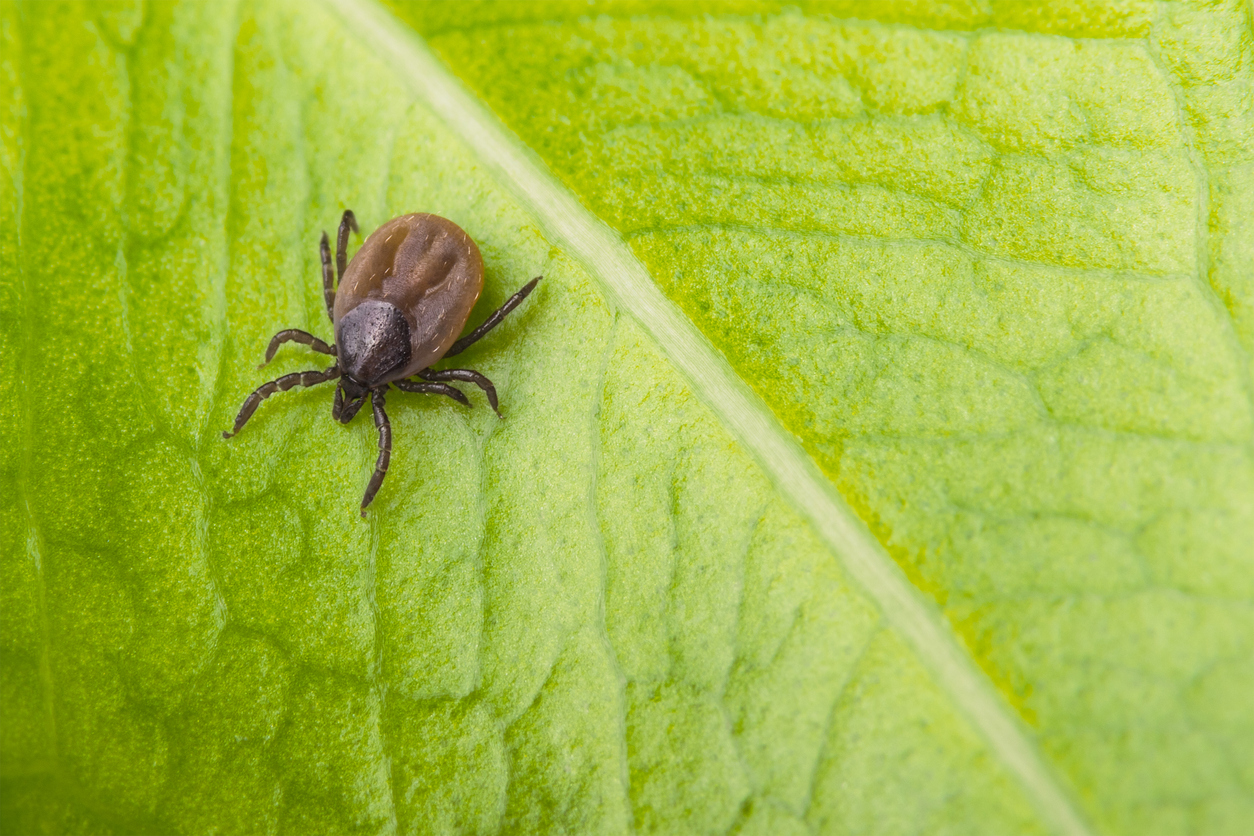
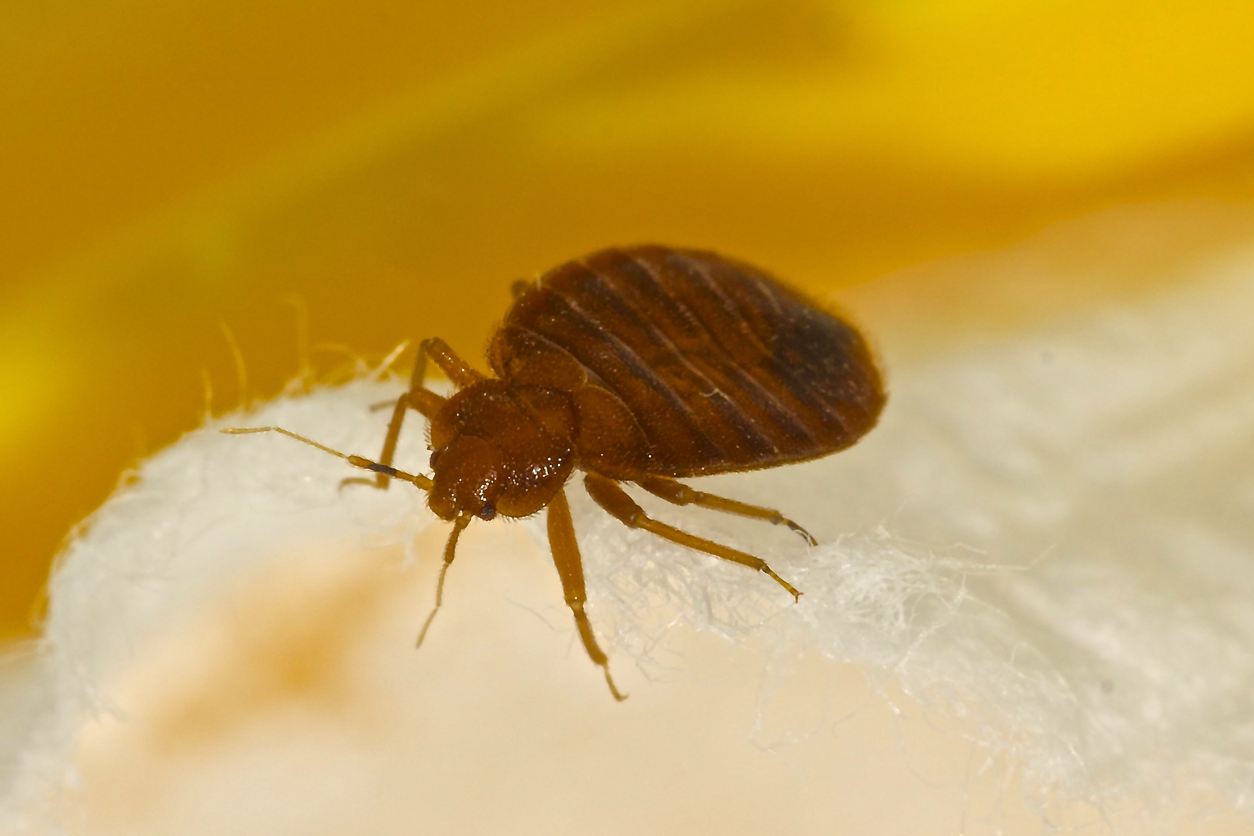
Tick vs. Bed Bug
Regarding these two tiny terrors, it’s a lose-lose situation. Both ticks and bed bugs are blood-sucking, easy-to-miss creatures that bite. However, they’re entirely different species, meaning identification may be easier than you think.
To tell the difference between a tick and bed bug, start by counting the legs. Ticks are in the same family as spiders, so they have eight legs, whereas bed bugs have six. While neither can fly or jump, ticks are outdoor pests and prefer to prey on animals—they don’t infest homes. However, they may find their way inside after hitching a ride on you or a pet, so thoroughly check for ticks after spending time in long grass or forested areas.
Bed bugs, on the other hand, prefer the indoors. While ticks latch onto their prey for long periods of time, bed bugs bite and run, often biting in threes before returning to their home. Appearance-wise, bed bugs are usually larger than ticks with a reddish-brown color. Ticks are smaller, lighter in color, and have brown stripes on their legs.
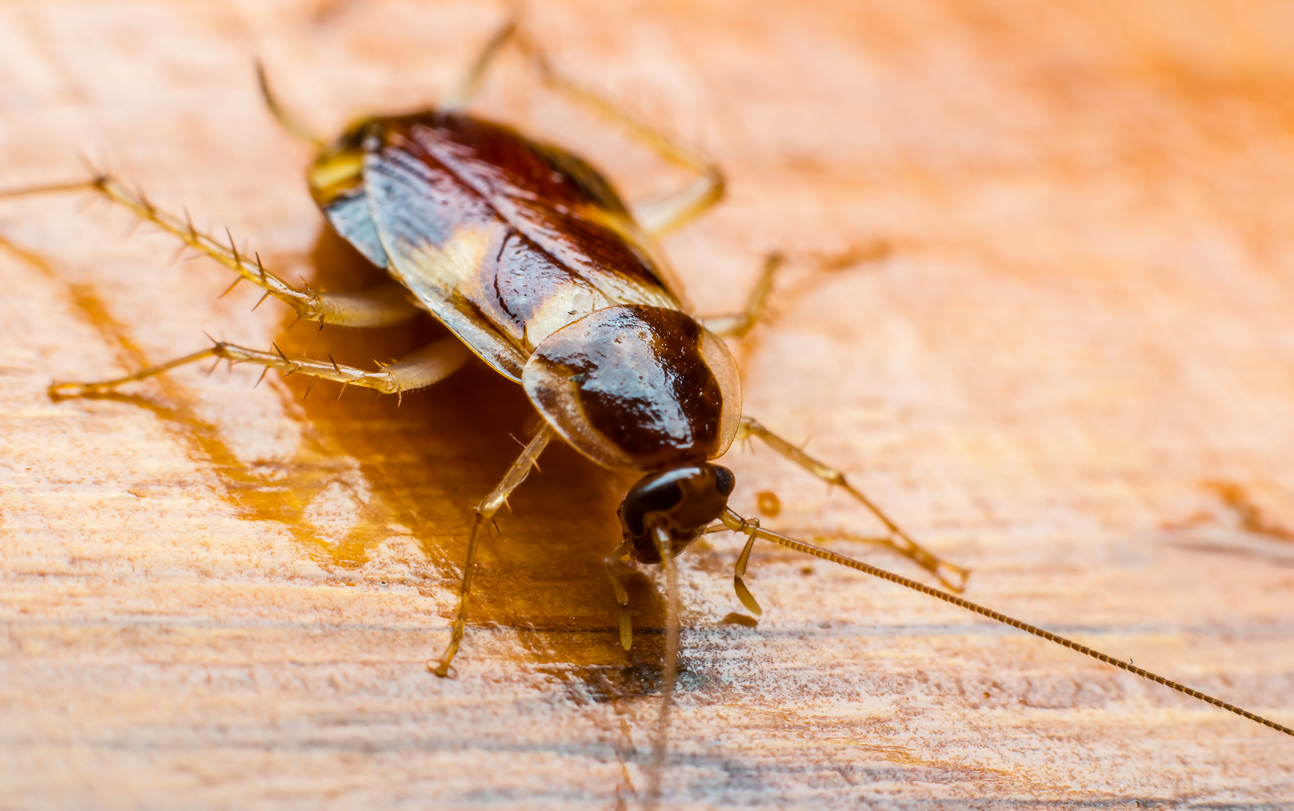
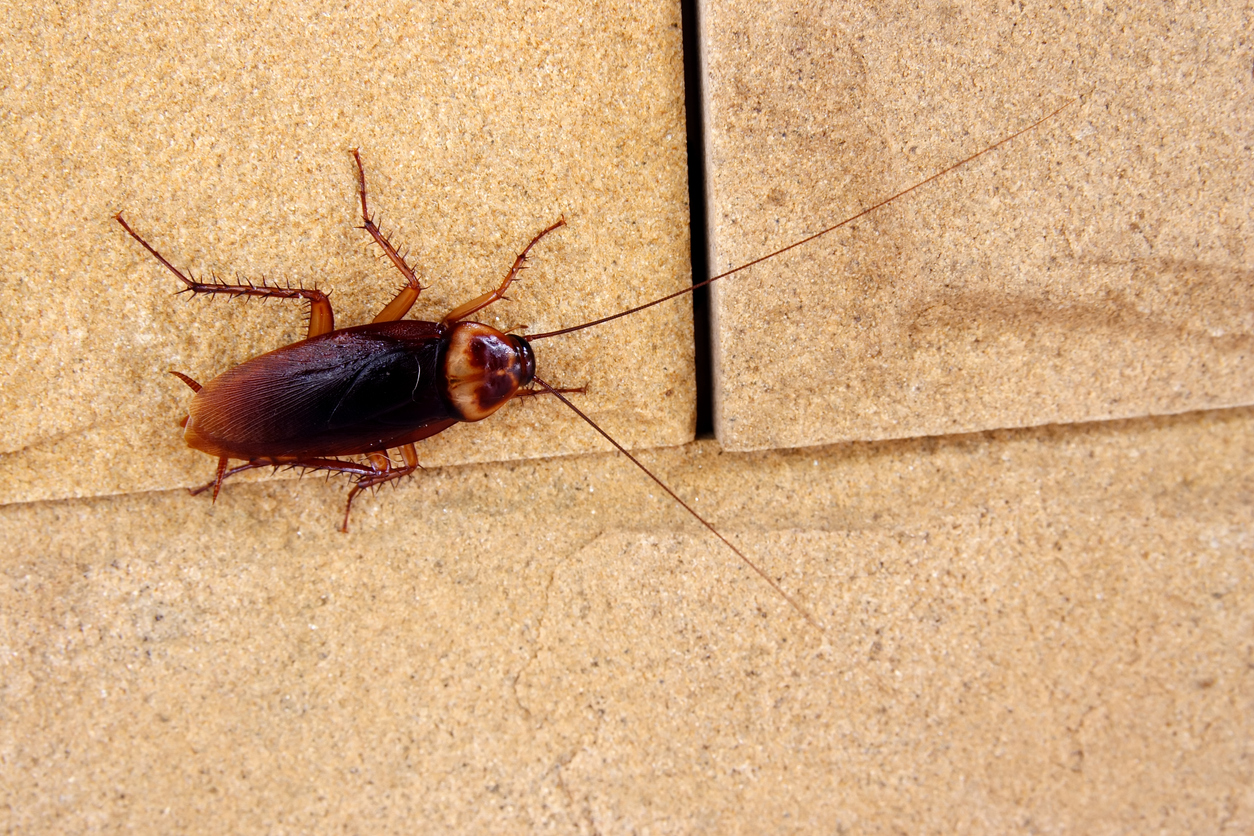
Cockroach vs. Palmetto Bug
A common misconception is that cockroaches and palmetto bugs are two different species. However, palmetto bugs are one of 50 types of cockroaches. Like any cockroach, they’re hard to eradicate. They’ll eat anything edible and can live up to three months without food.
A palmetto bug is reddish-brown or darker with sunglass-shaped markings around its head. They typically grow about one and a half inches in length and an inch in width, and are larger than the average cockroach, such as the German cockroach most commonly found in homes.
Palmetto bugs prefer the outdoors, but can come inside for food or shelter, whereas the German cockroach is most often found indoors and reproduces quickly.
Both of these bugs can contaminate your food, so it’s best to call the pest professionals if you have an infestation.
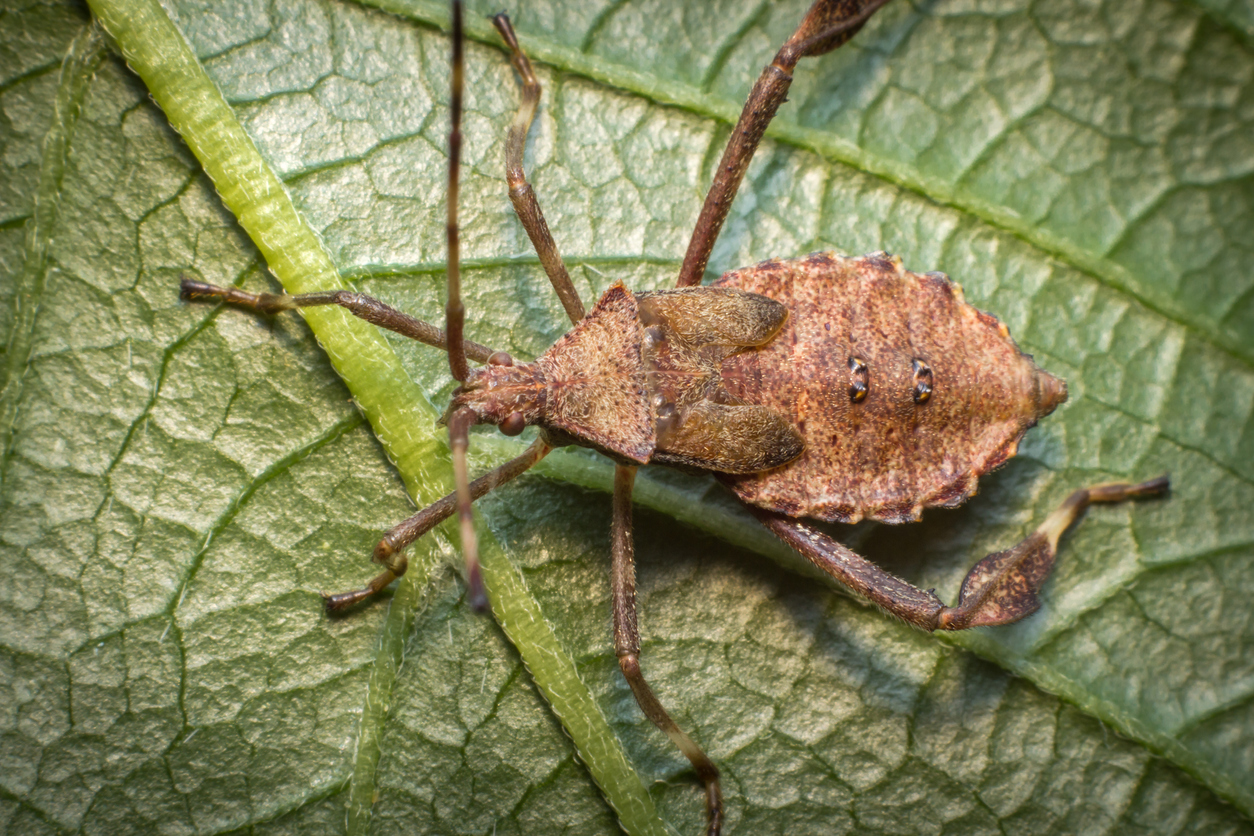
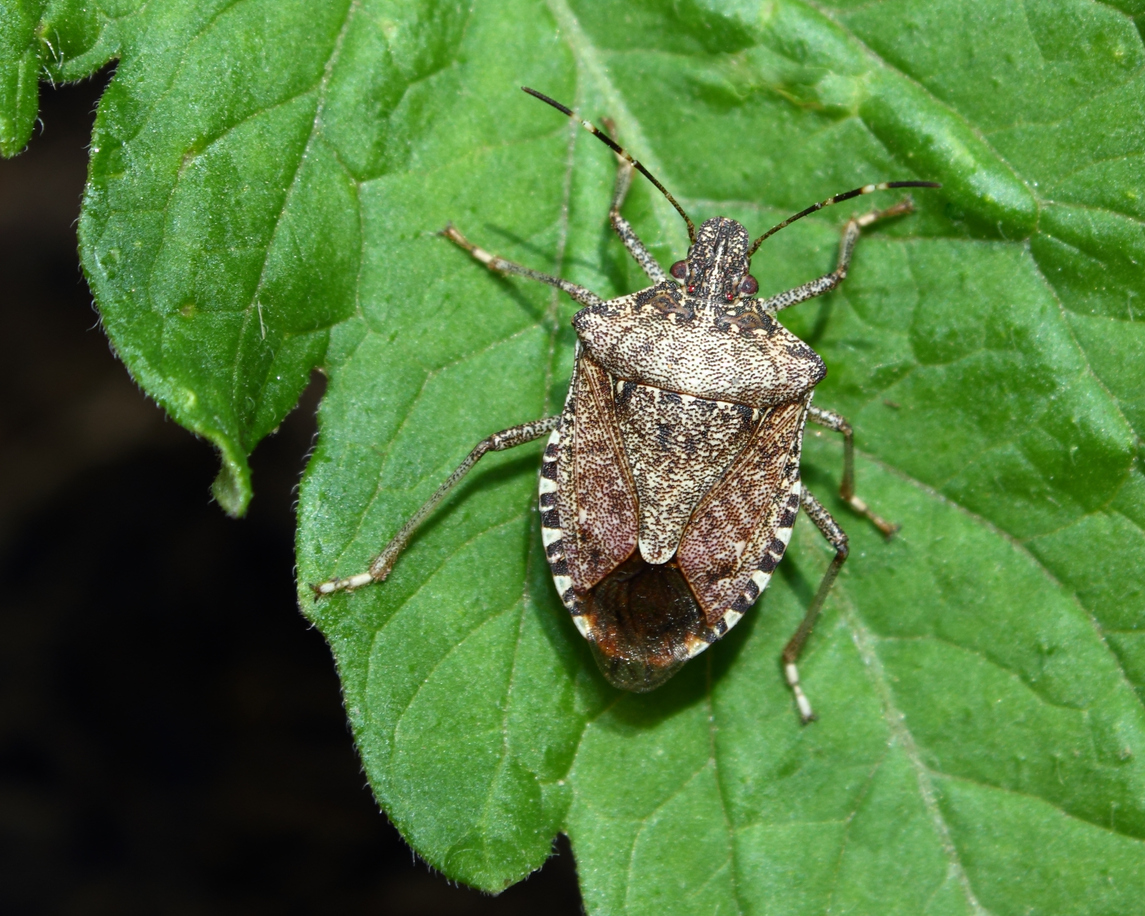
Squash Bug vs. Stink Bug
Squash bugs and stink bugs are similar in that they both emit a strong odor when threatened and can be challenging to manage, especially as numbers grow. It doesn’t help that the two bugs have similar coloring and body shapes.
While they both have antennae and six legs, stink bugs are wider and rounder with a more shield-like body shape. Stink bug eggs are lighter-colored, while squash bugs have darker eggs. Unfortunately, they’re both capable of living indoors. However, you’ll most likely see squash bugs year-round, whereas stink bugs hibernate through cold weather.
If you see either of these insects in your home, check your produce and plant leaves for discoloration, as they like to suck out the juices for nutrients.
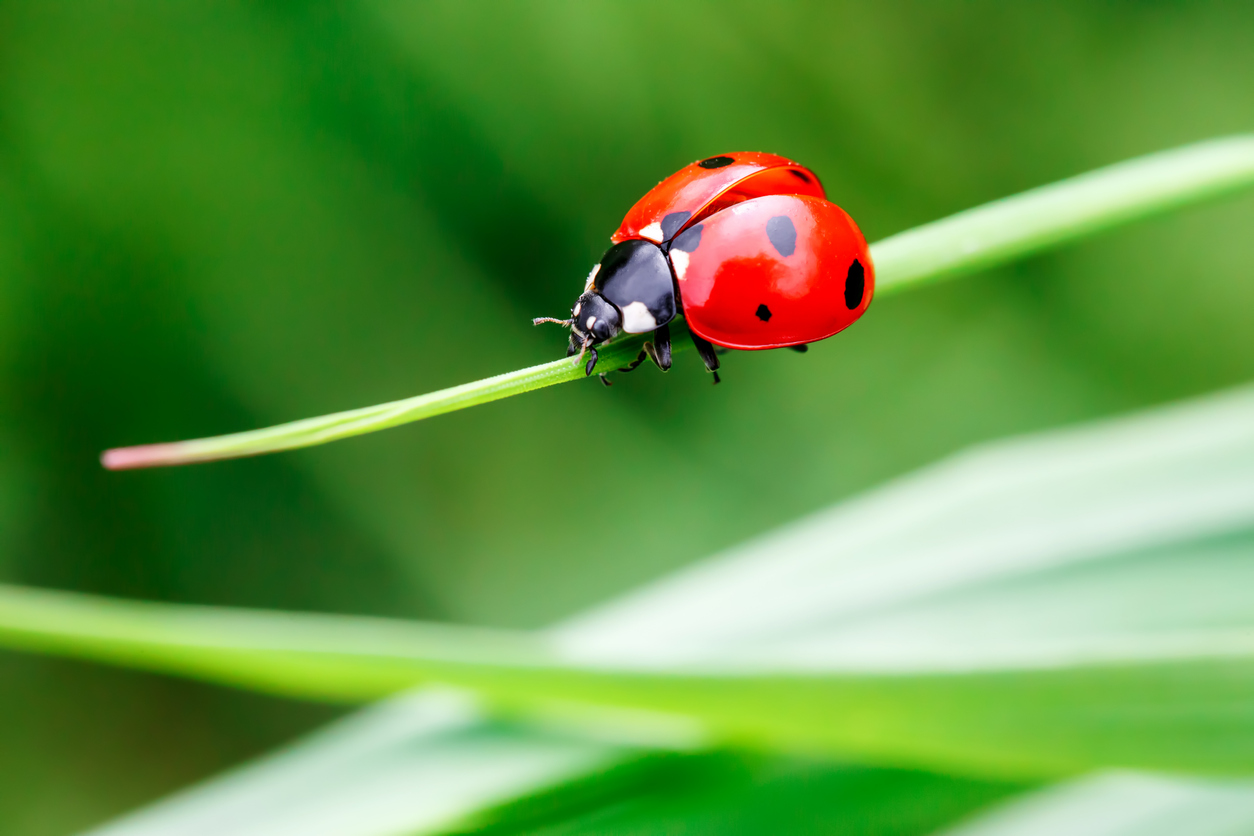
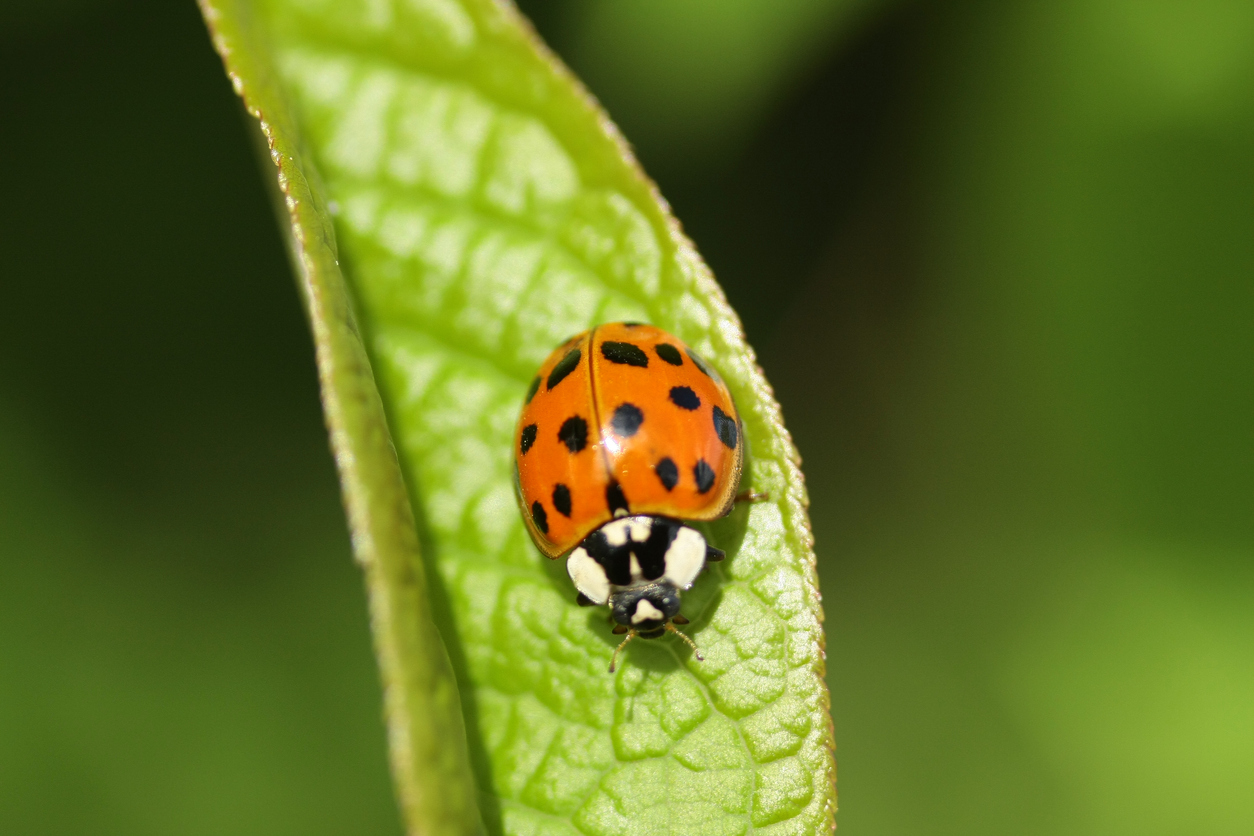
Ladybug vs. Asian Lady Beetle
One symbolizes luck, wouldn’t harm a fly, and is always welcome to land on your outstretched finger. The other bites, excretes a smelly liquid, and infests your home in the winter. As you can see, it’s vital to tell the difference between ladybugs and Asian lady beetles.
Ladybugs are nature’s version of the friendly neighbor. You wouldn’t want them in your house all the time, but overall, they’re harmless. The Asian lady beetle, however, is a pest. Though they’re both in the beetle family, Asian lady beetles are an invasive species that feast on other lady beetles and seek shelter each winter, which leads to home infestations.
The key to telling them apart is their markings. Asian lady beetles will have an M-shaped mark on their heads, while ladybugs only have two white markings. While both can range from red to orange in color, Asian lady beetles can also be yellow or black.
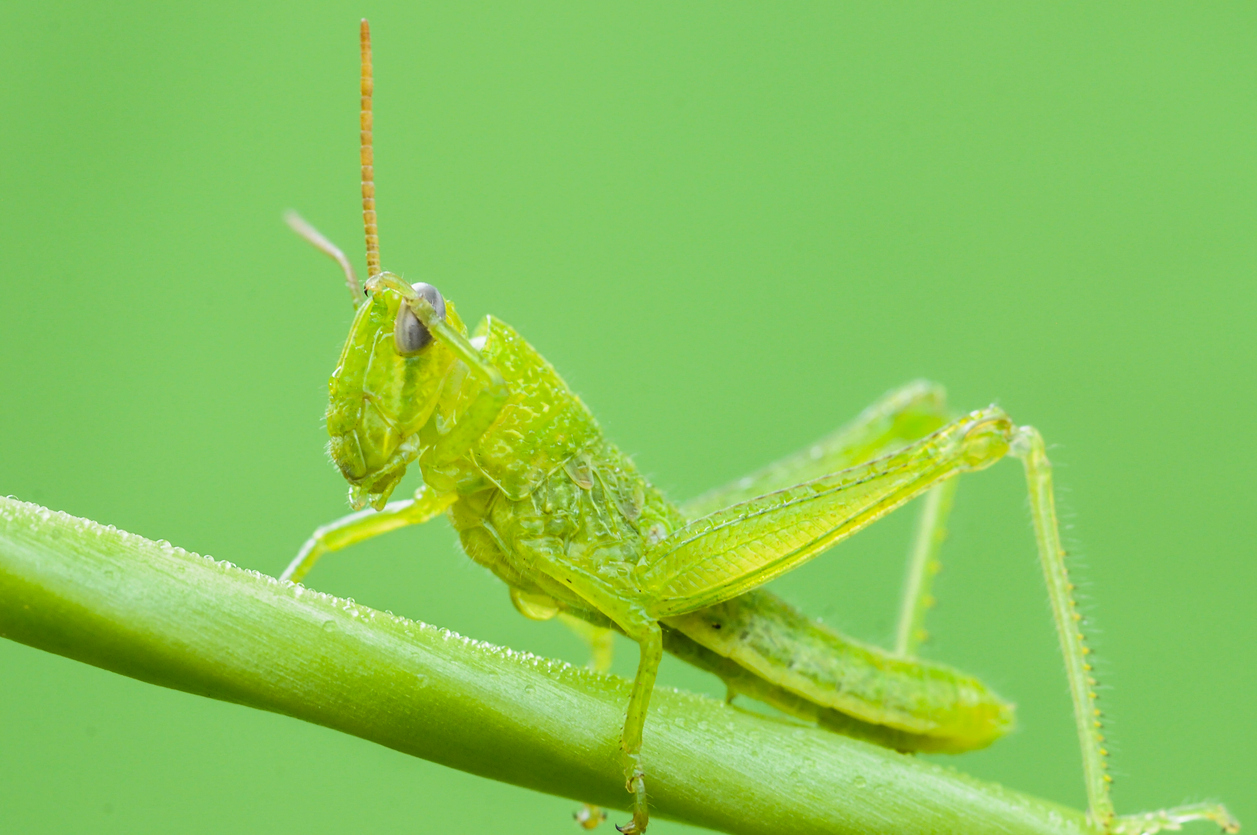
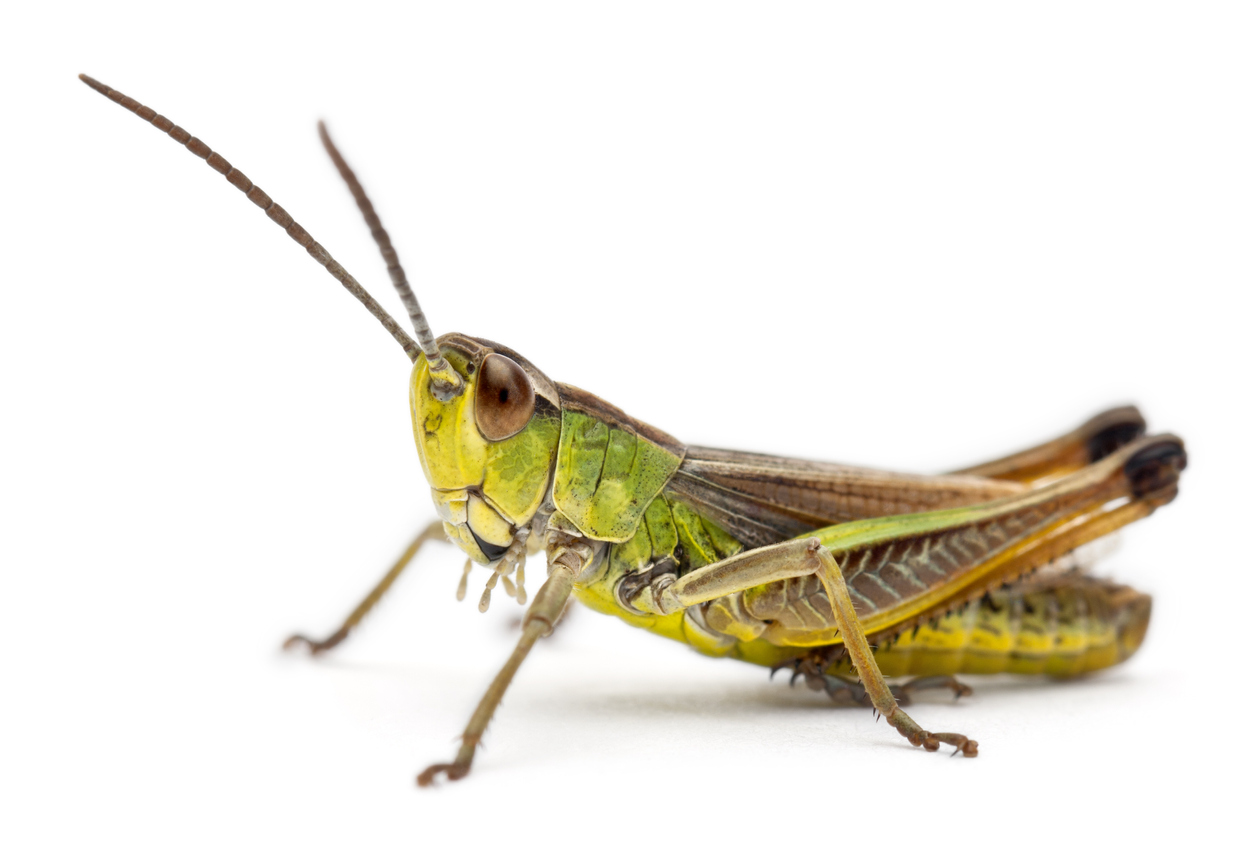
Grasshopper vs. Cricket
Crickets and grasshoppers are perhaps the most commonly mistaken pests. They look very similar and both make chirping noises known as their song. However, you can quickly identify which is which if you know what to look for.
Some of the most noticeable differences are that crickets have longer antennae and are nocturnal, so the chirping you hear at night is likely a cricket. Meanwhile, grasshoppers hop about and chirp during the day.
Though they both make music, there’s a slight difference to their songs. Crickets chirp by rubbing their forewings together, while grasshoppers scrape their legs against their wings.
Let Us Decide For You
If you’re struggling with an infestation and don’t want to dive deep into pest ID, call Arrow Exterminators for a personalized pest control plan. Don’t worry — we’ll do all the identifying for you.

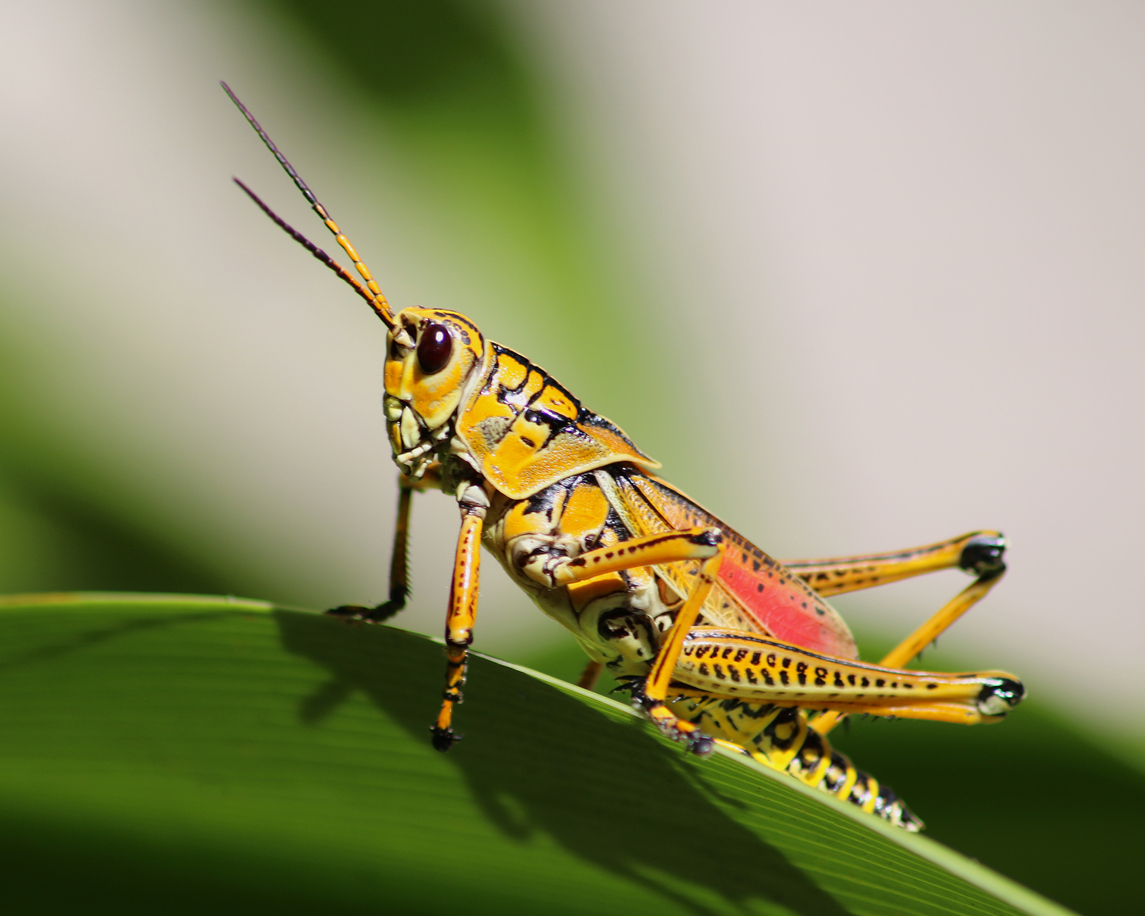




 YouTube
YouTube Facebook
Facebook Twitter
Twitter Instagram
Instagram